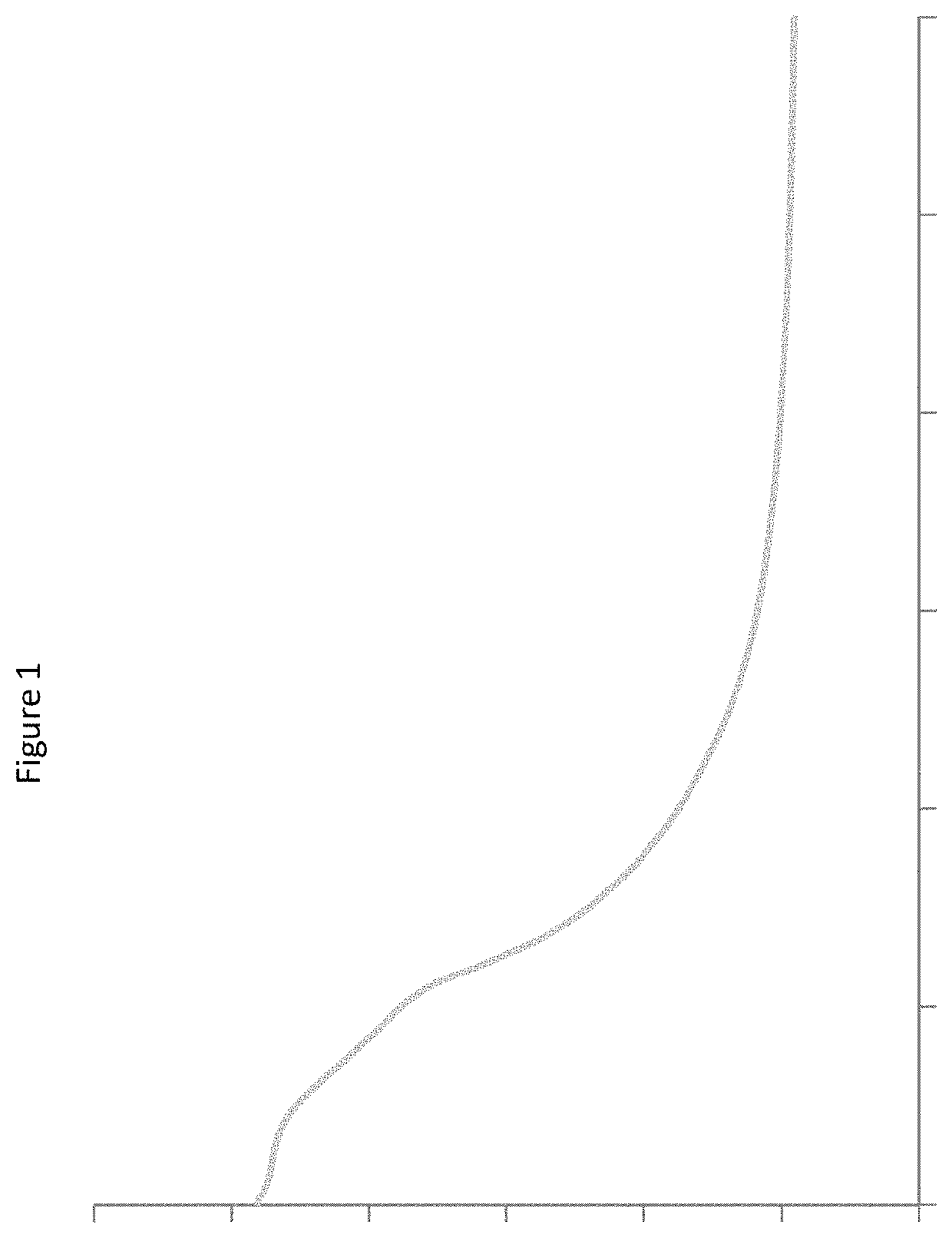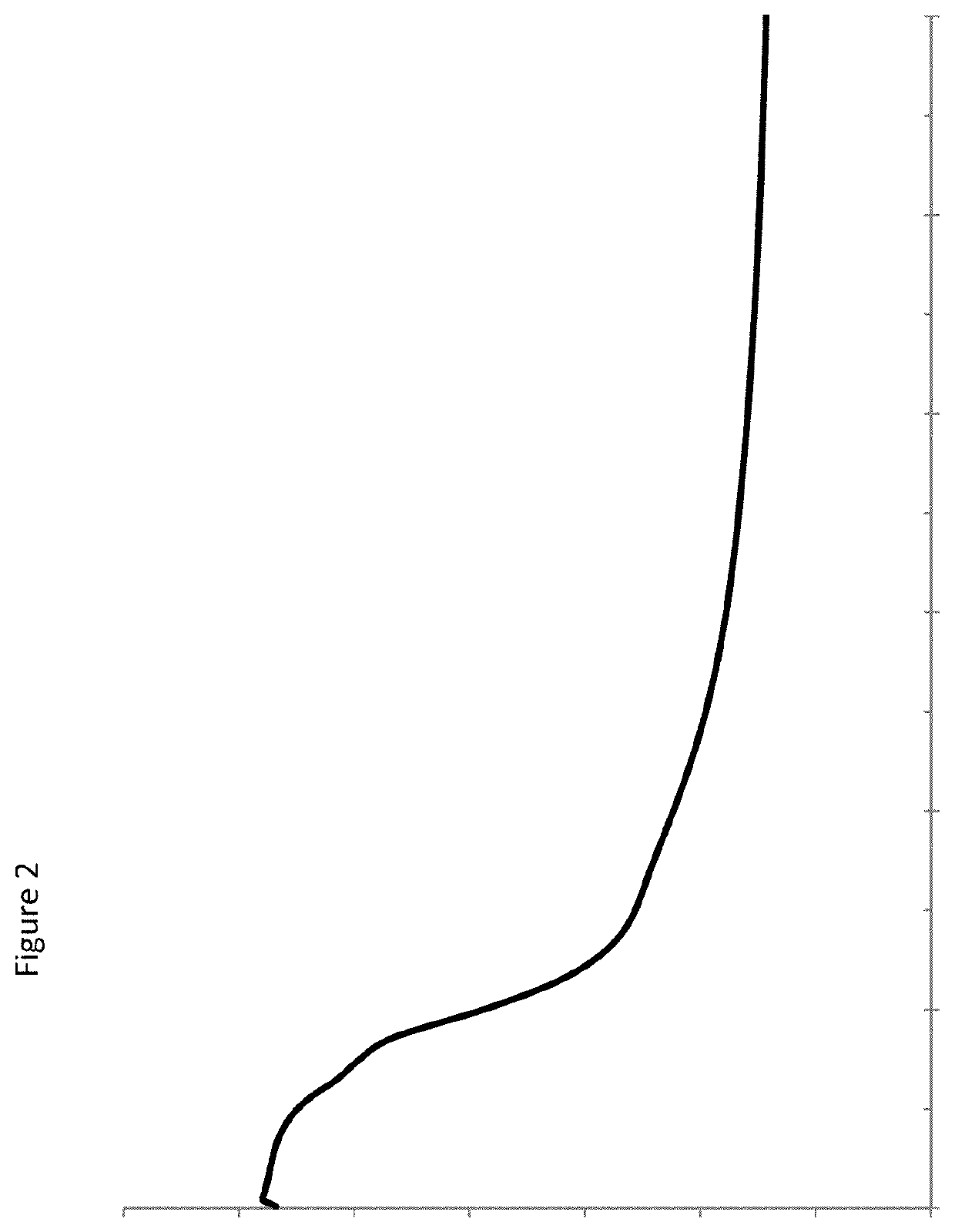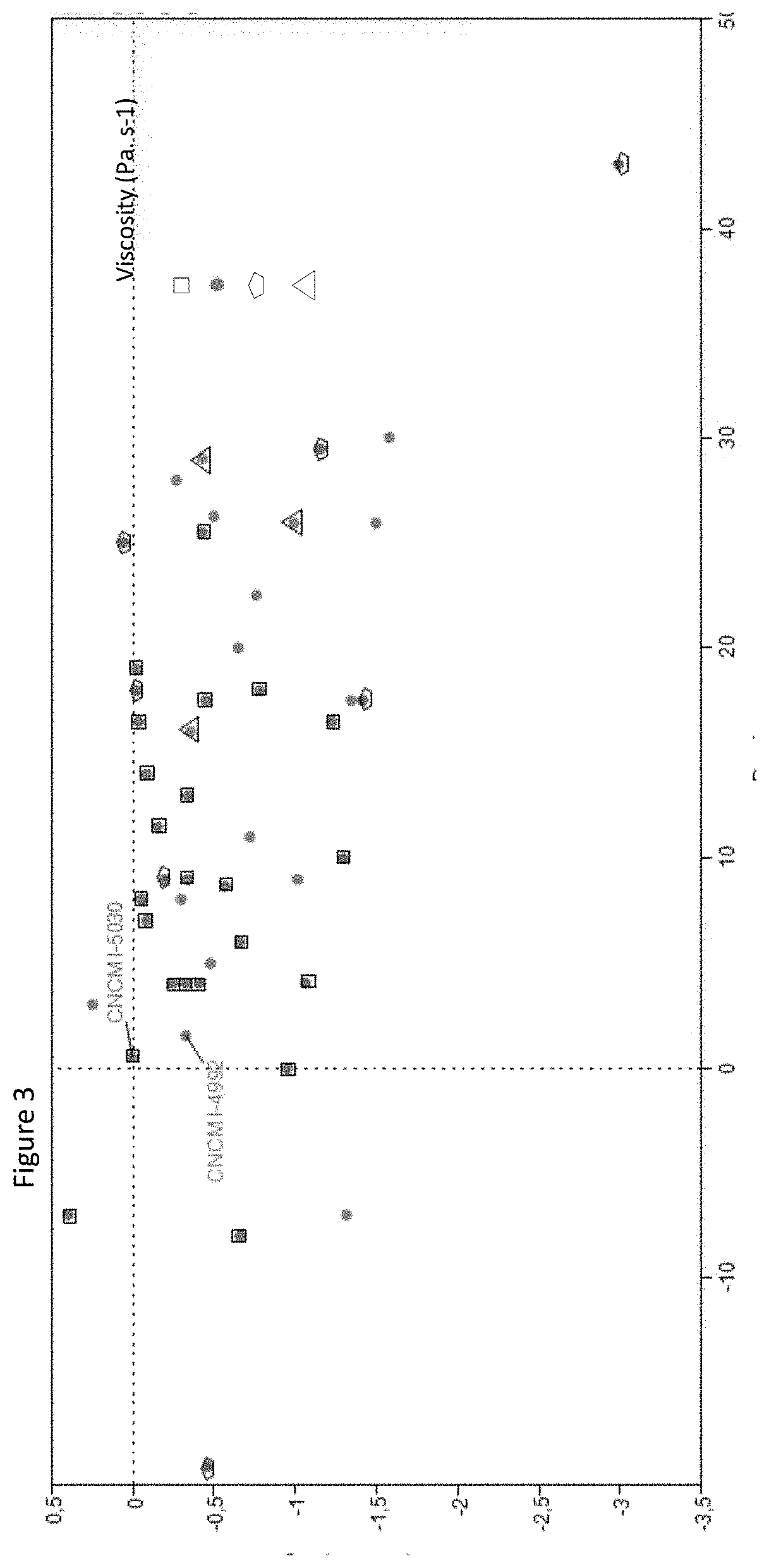Streptococcus thermophilus for use in preparation of fermented products
a technology of streptococcus thermophilus and fermented products, which is applied in the preparation of creams, bacteria based processes, microorganisms, etc., can solve the problems of delayed fermentation process, and achieve the effect of reducing post-acidification and being exceptionally useful in preparation
- Summary
- Abstract
- Description
- Claims
- Application Information
AI Technical Summary
Benefits of technology
Problems solved by technology
Method used
Image
Examples
example 1
CNCM I- 5030 & CNCM I-4992 Milk Acidification and Viability
[0112]Reconstituted milk was prepared by mixing 137.5 g skimmed milk powder (Aria) per litre permuted water and pasteurized at 95° C. for 45 minutes, for strain CNCM I-5030 0.5% Vitalarmor 950 (Armor Proteins) was added. Bacterial strains were provided in frozen form by Danone. Strains were inoculated at 1% in the reconstituted milk from a culture obtained in milk enriched by 0.2% of yeast extract, obtained itself by a 1% inoculation of the strain from a first step of culture in M17 medium inoculated by the bacterial strain in frozen form. Fermentation was carried out at 37° C. and monitored using a CINAC pH probe. The resultant fermented milk was cooled and stored at 10° C. for determination of strain viability and post-acidification of the fermented milk over 28 day storage.
[0113]S. thermophilus strains CNCM I-1630 and CNCM I-2130 used in the preparation of commercially available fermented milk products were used as the be...
example 2
CNCM I-5030 & CNCM I-4992 Fermented Milk Characteristics
[0115]Post-acidification affects the taste of fermented milk products and is caused by the continued production of lactic acid by bacterial cultures during the shelf-life of the products. In order to determine the post-acidification properties of the panel of S.thermophilus strains fermented milk products were prepared using said strains according to Example 1. The change in dornic acid degree of the fermented milks was determined over 28 day-storage at 10° C. Viability of the S. thermophilus strains, as measured by bacterial counts in colony forming units (CFU) was also determined. Finally, texturizing properties of the strains was determined by measuring viscosity. The viscosity was measured by applying a regular shearing strength increase using a rheometer with 2 co-axial cylinders (RM 180, Mettler). Mobile n°1 was used together with the pot n°1. 64 s-1 shearing is applied during 10 seconds on the test product at 10° C.
[0116...
example 3
[0117]FMP starter cultures typically contain an association of S. thermophilus and L. bulgaricus strains. Accordingly In order to confirm its post-acidification properties strain CNCM I-4992 was tested in association with 3 different strains of L. bulgaricus. A food-grade fermented milk product was prepared by fermentation of a pasteurized milk base (13.75% cow skim milk powder in permuted water and pasteurized at 95° C. for 45 minutes) with the yogurt starter culture (L. delbrueckii, S.thermophilus). Fermentation was carried out at 37° C., and monitored using a CINAC probe. Fermentation was stopped by rapid cooling when pH 4.7 was reached. The change in dornic acid degree of the fermented milks was determined over 28 day-storage at 10° C. As demonstrated in FIG. 4, post-acidification of the fermented milks remained low.
PUM
| Property | Measurement | Unit |
|---|---|---|
| weight | aaaaa | aaaaa |
| viscosity | aaaaa | aaaaa |
| viscosity | aaaaa | aaaaa |
Abstract
Description
Claims
Application Information
 Login to View More
Login to View More - R&D
- Intellectual Property
- Life Sciences
- Materials
- Tech Scout
- Unparalleled Data Quality
- Higher Quality Content
- 60% Fewer Hallucinations
Browse by: Latest US Patents, China's latest patents, Technical Efficacy Thesaurus, Application Domain, Technology Topic, Popular Technical Reports.
© 2025 PatSnap. All rights reserved.Legal|Privacy policy|Modern Slavery Act Transparency Statement|Sitemap|About US| Contact US: help@patsnap.com



